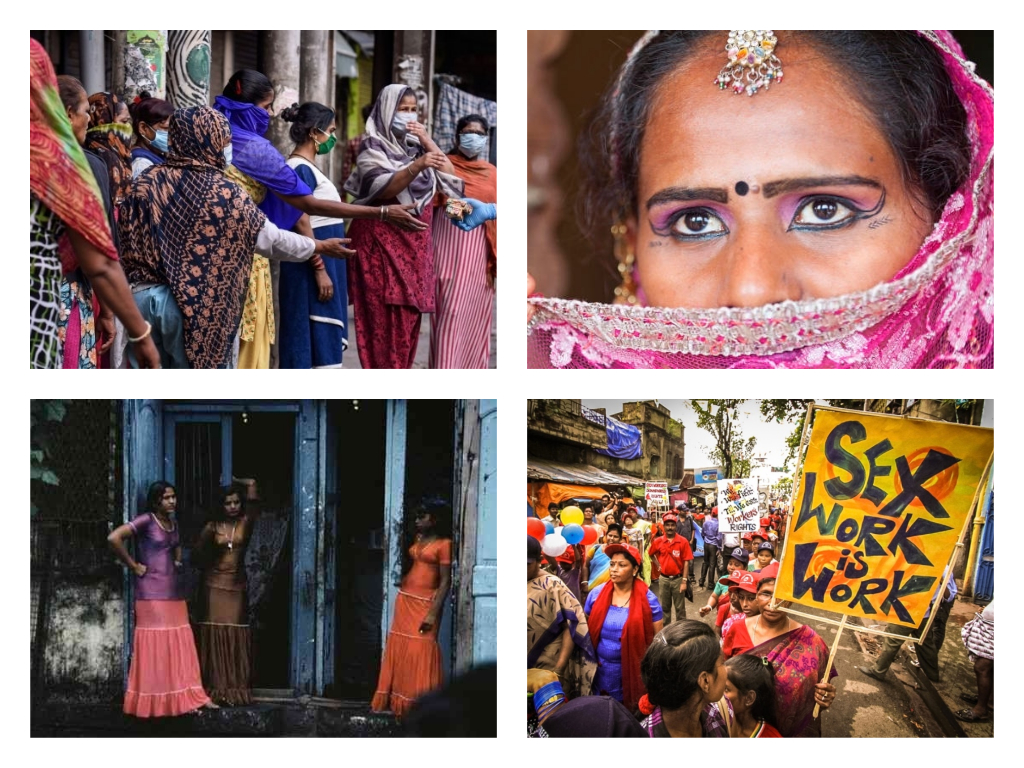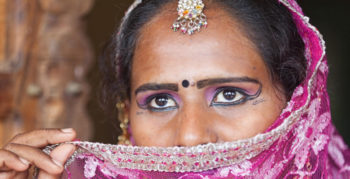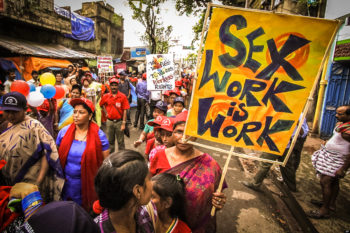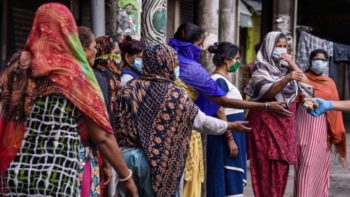
Red Light District Workers In India Are Struggling To Survive Amid COVID-19 Pandemic
Lifestyle Jul 05, 2021
It is fair to say that the COVID-19 pandemic has had a devastating impact on almost all sectors of society. Yet, sex workers in India may have been affected the most by the economic slowdown it caused.
Katarzyna Rybarczyk is a political journalist for https://immigrationnews.co.uk. She aims to raise awareness about security threats worldwide and the challenges facing women in developing countries.
India is home to some of the highest numbers of sex workers in the world. The exact numbers are unknown, but some estimate that there can be as many as twenty million commercial prostitutes there. The recurrent lockdowns and restrictions imposed by the government in recent months have posed significant challenges for sex workers and pushed many of them into extreme poverty.
Theoretically, sex work is not considered a crime in India, so their fundamental rights should be protected. In reality, however, they remain amongst the most vulnerable and marginalized communities and are alienated from the government’s responses.

Sex Workers’ Struggle For Respect And Legal Rights
According to Indian labour law, sex workers have the right to get assistance with leaving the sex work industry, rejoining society and getting training that would allow them to find a different way of earning income. Sadly, however, there is so much stigma around their profession that their integration into the community is highly challenging.
Sex work might not be a crime in India, but numerous activities related to it, for example brothel keeping or forcing women into prostitution, are. Hence, most sex workers face hostility and discrimination despite them not doing anything illegal. Moreover, the government does not offer incentives for communities to accept former sex workers, indirectly forcing women who face extreme discrimination to go back to prostitution.
Most women who engage in sex work do so because of a lack of education and skills that would allow them to find regular employment. The majority of sex workers comes from impoverished areas where it is not uncommon for entire families to rely on sex work for income. For them, escaping the reality of being a sex worker is borderline impossible as doing so would mean risking having no means of support.
How The Pandemic Has Affected Sex Workers In India
Sex workers are dependent on physical contact and regular meetings with clients for livelihood. Because of the lockdown and movement restrictions, most of them have seen a significant decrease in the number of people using their services.
Scientists from the US advised the Indian government that keeping red-light districts closed until most of the country’s population is vaccinated can prevent up to seventy-two per cent of new infections. In turn, many sex workers, unable to go back to their hometowns, saw themselves confined to cramped, unsanitary brothels. They have been facing ‘a twofold challenge, the one of being cut from their source of income and the one of being at a heightened risk of contracting COVID-19’, the International Institute of Social Studies reported.

Currently, sex workers are not recognized as workers under the Indian labour law, which deprives them of many rights, including access to financial help from the government. Sex workers have been demanding fair treatment and recognition as labourers for many years, but to no success.
Struggling to pay rent and earn a living, some have turned to virtual sex work. It can seem like a sustainable alternative, preventing the spread of various diseases and protecting sex workers’ safety. Regrettably, however, very few sex workers have access to the Internet and good quality phones and computers. Receiving payments for virtual sex work is also problematic, with frequent cases of clients taking advantage of online services and disappearing immediately after.
Sex Workers Are At The Mercy Of Charities And NGOs
Since the pandemic began, the Indian government has been offering food supplies to the most vulnerable communities, including sex workers. Nevertheless, as Deutsche Welle reported, only those who have ration cards have been eligible for this aid. Ration cards, which often serve as a form of identification, represent a document issued by the authorities to households eligible for food subsidy programmes.

Most sex workers do not have ratio cards nor any other form of documentation, and thus they cannot receive assistance from the government. With no support from the authorities, they have been entirely reliant on NGOs and charities for food and critical medications. Without them, hundreds or even thousands would risk starving to death.
The situation of sex workers in India is dire. For women to find the strength to escape the cycle of selling their bodies to survive, empowering them and changing the way Indian society perceives sex workers is crucial. So is showing them respect and providing them with the support and assistance they require. After all, every person has a right to live in dignity, free from discrimination.
Main Image Photo Credit: www.avert.org, https://spontaneousorder.com, www.deccanherald.com
Katarzyna Rybarczyk
Author
Katarzyna Rybarczyk is a Political Correspondent for https://immigrationnews.co.uk media platform affiliated with Immigration Advice Service. She aims to raise awareness about security threats worldwide and the challenges facing women in developing countries.

















































































































